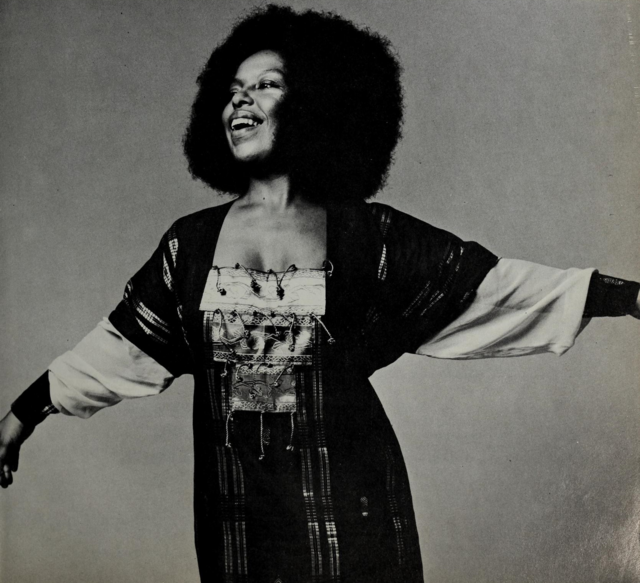
By Stacy M. Brown, NNPA Newswire Senior National Correspondent
Roberta Flack, the Grammy-winning singer and pianist whose smooth vocals and intimate style made her a defining artist of the 1970s, died Monday at her home surrounded by family. She was 88. Her publicist, Elaine Schock, confirmed the news in a statement. Flack revealed in 2022 that she had been diagnosed with amyotrophic lateral sclerosis (ALS), also known as Lou Gehrig’s disease, which had taken away her ability to sing.
Her death came just one day after the passing of soul-funk singer Gwen McCrae, who died Sunday at 81. McCrae, best known for hits like “Rockin’ Chair” and “Funky Sensation,” was celebrated for her enduring influence on soul and disco music. It also came just days after three-time Grammy nominee and Rock and Roll Hall of Famer Jerry Butler, a premier soul singer of the 1960s, died at 85.
Butler, known as “Ice Man,” had numerous hits including “For Your Precious Love,” and “Make It Easy on Yourself.”
Butler’s niece, Yolanda Goff, told The Associated Press that Butler died of Parkinson’s disease at his home in Chicago.
Roberta Flack: A Life in Music
Born Roberta Cleopatra Flack on February 10, 1937, in Black Mountain, North Carolina, she was raised in Arlington, Virginia, where her musical roots were cultivated at the Lomax African Methodist Episcopal Zion Church. Flack began piano lessons at nine and earned a full scholarship to Howard University at 15. She initially studied piano before switching to voice. She graduated at 19 and later taught music and English in North Carolina after her father’s death.
In Washington, D.C., Flack balanced teaching with nightclub performances, captivating audiences at local venues like Mr. Henry’s on Capitol Hill. Her breakthrough came when jazz pianist Les McCann discovered her and arranged an audition with Atlantic Records. Her 1969 debut album First Take initially received little attention until Clint Eastwood featured her rendition of “The First Time Ever I Saw Your Face” in his 1971 film Play Misty for Me. Released as a single in 1972, the song topped the Billboard Hot 100 for six weeks and earned Flack her first Grammy Award for Record of the Year.
Flack’s success soared with her 1973 recording of “Killing Me Softly with His Song,” which became her signature hit. The song spent five weeks at No. 1 on the Billboard Hot 100 and earned her two Grammys: Record of the Year and Best Female Pop Vocal Performance. With the win, Flack became the first artist to earn consecutive Record of the Year awards.
Her partnership with Donny Hathaway produced hits like “Where Is the Love,” which won a Grammy for Best Pop Performance by a Duo or Group. She continued her chart success with “Feel Like Makin’ Love” in 1974, making her the first female vocalist to top the Hot 100 in three consecutive years. Flack’s later collaborations with Peabo Bryson and Maxi Priest yielded popular tracks like “Tonight I Celebrate My Love” and “Set the Night to Music.”
Throughout her career, Flack advocated for artist rights and founded the Roberta Flack School of Music, providing free music education to underprivileged youth. She received a star on the Hollywood Walk of Fame in 1999 and performed for Nelson Mandela that same year. Flack is survived by her son, musician Bernard Wright.
Gwen McCrae: Soul and Disco Legacy
Gwen McCrae, celebrated for her rich voice and lasting impact on the disco and soul music scenes, died Sunday at 81. A statement from her official brand account called her passing “more bad news” for the music world and acknowledged how fans “are still jamming to ‘Rockin’ Chair’ all these years later.”
Born Gwen Mosley in Pensacola, Florida, McCrae began singing in church choirs before meeting George McCrae, whom she married in 1963. The couple performed as a duo and signed with Henry Stone’s Alston label. By 1970, McCrae had achieved early success with “Lead Me On.” In 1972, she released “Always On My Mind,” a song later popularized by artists including Elvis Presley, Willie Nelson, and the Pet Shop Boys.
Her biggest commercial success came in 1975 with “Rockin’ Chair,” which topped the R&B chart and reached No. 9 on the Billboard Hot 100. While the single remains her most widely recognized hit, many fans and DJs remember her for the 1981 club favorite “Funky Sensation,” which has endured as a dancefloor staple.
McCrae’s career spanned decades, and her other notable songs included “Keep the Fire Burning.” Despite her accomplishments, she often spoke about the lack of recognition and fair compensation for Black artists of her era.
After suffering a stroke in 2012 that left her partially paralyzed, McCrae retired from performing. Her daughter, Leah McCrae, carries on the family’s musical legacy as a solo artist and member of the group Daughters of Soul.


